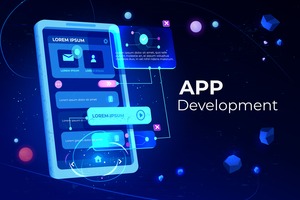Body
Android App Development
Android app development refers to a type of software engineering for creating mobile applications specifically designed for devices running on the Android operating system. It involves designing, coding, testing, and deploying applications using programming languages like Java or Kotlin.
Explore More | A Comprehensive List of Top dApp Development Platforms
Why You Should Should Opt For Mobile App Development Services?
The following are some benefits of opting the mobile app development services:
Security
Android applications benefit from the foundation of the Linux operating system. It ensures robust security and seamless functionality for mobile apps on the Google Play Store.
Linux provides inherent protection against viruses and malware. It offers added layers of security to safeguard user data and ensure a secure app environment.
Compatibility
Android apps enjoy compatibility with a wide range of devices available in the market. This popularity stems from the affordability of Android-powered devices. It makes them a more accessible choice for consumers compared to Apple devices.
Cost-effective
Android apps only require a one-time registration fee. Developers can build and test apps after registration. In contrast, Apple charges a yearly fee for app development.
Additionally, Android is open source, which eliminates licensing costs and royalties while utilizing a software development kit (SDK).
In-house Customization
Businesses can create applications with development tools and open-source libraries. These tools enable in-house customization to build interactive and feature-rich applications.
Suggested Read | Benefits of Custom App Development on Blockchain
Frameworks and Integrated Development Environment (IDE)
Frameworks are pre-existing software structures that provide a foundation and set of tools for developing applications. They allow developers to streamline the development process and reuse code components.
Integrated Development Environments (IDEs), on the other hand, are software tools that provide a comprehensive environment for software development. They offer features like code completion, syntax highlighting, and project management capabilities to streamline development processes.
Android app development relies on a variety of frameworks and development tools to streamline processes and create robust applications. Here are some key frameworks and the development environment commonly used in Android app development:
Android Studio
Android Studio is the official integrated development environment (IDE) for Android app development. It provides a comprehensive set of tools, including a code editor, visual layout editor, debugging tools, and performance analysis features. Android Studio simplifies development processes by offering features like code completion, version control integration, and automated build system support.
Programming Languages
The following are the programming languages for Android app development:
Java
Java is the traditional and widely adopted programming language for Android app development. It offers a mature development ecosystem with a vast collection of libraries, resources, and community support. Java provides developers with object-oriented programming capabilities and enables them to create robust and scalable Android applications.
Kotlin
Kotlin is a modern programming language by JetBrains. Google officially supports it for Android app development.
Kotlin offers concise syntax, enhanced safety features, and seamless interoperability with existing Java code. It offers developers increased productivity, improved code readability, and reduced boilerplate code.
Check It Out | Why Go for Java for Ethereum Blockchain Development
Android Jetpack
Android Jetpack is a collection of libraries, tools, and guidelines by Google to enhance the development process and improve performance. It includes LiveData, ViewModel, Room, and Navigation. These components simplify tasks like data management, UI updates, local data storage, and app navigation.
Glide
Glide is an image-loading and caching library designed specifically for Android apps. It provides efficient and smooth image loading, resizing, and caching capabilities, enabling developers to display images seamlessly in their applications.
Also, Visit | A Compact Guide to Permissioned Blockchain App Development
Firebase
Firebase is a comprehensive mobile development platform by Google that offers various services and tools to simplify app development. It includes features like real-time databases, authentication, cloud storage, messaging, crash reporting, and analytics. Firebase enables developers to integrate these services seamlessly into their Android apps, reducing the need for backend infrastructure development.
Retrofit
Retrofit is a popular networking library that simplifies the process of making API calls in Android apps. It offers a clean and intuitive API for handling network requests, parsing responses, and interacting with RESTful APIs.
Also, Discover | Top Blockchain Platforms for Blockchain App Development
Conclusion
The choice of frameworks and IDE depends on project requirements, developer preferences, and the specific features and functionalities needed for the application. With access to these powerful development tools, the Android platform provides an ideal environment for building successful and engaging applications. By embracing the potential of Android app development, businesses can open up new opportunities, connect with their target audience, and make a lasting impact in the dynamic mobile landscape.
Connect with our mobile app development company to start your app development journey.













Comments